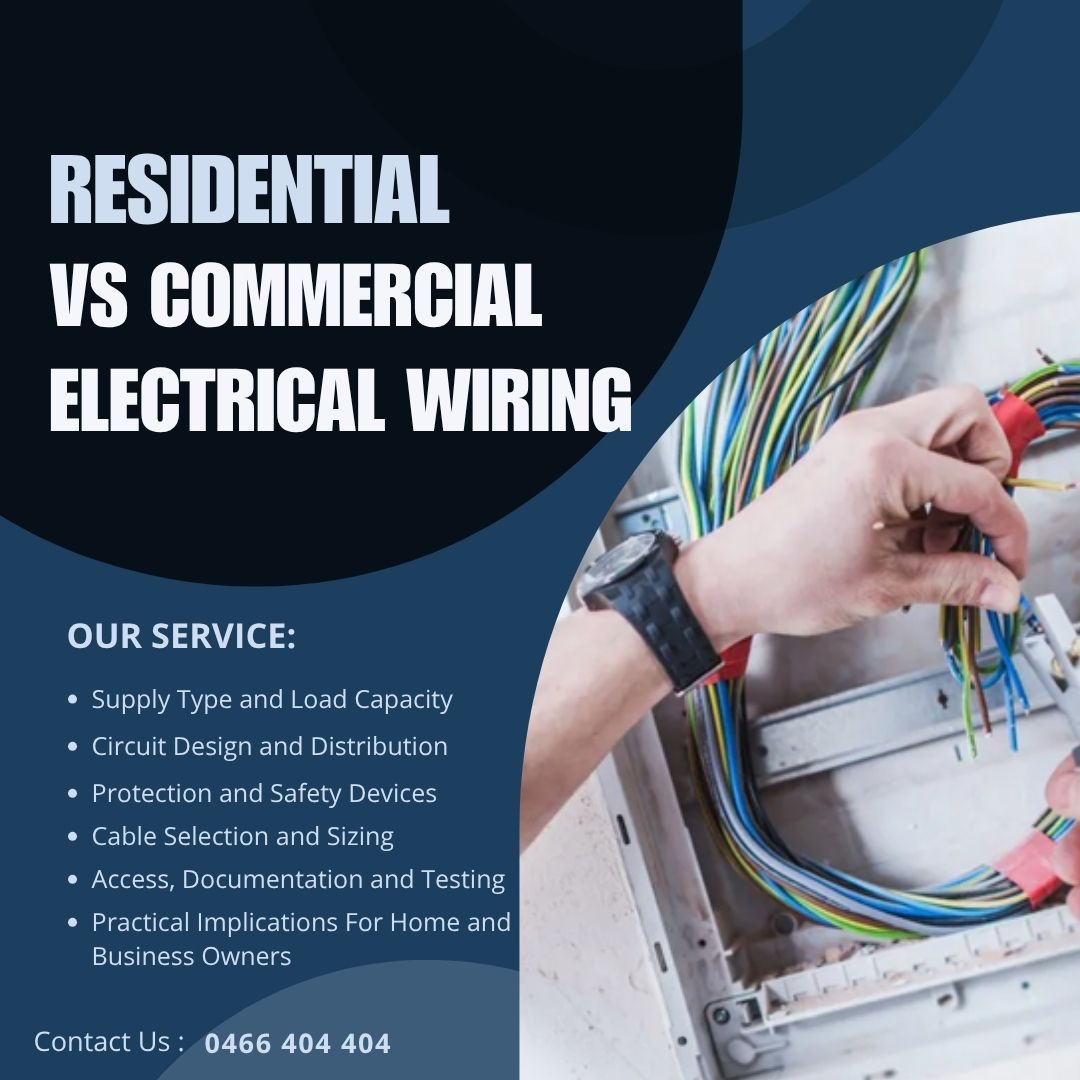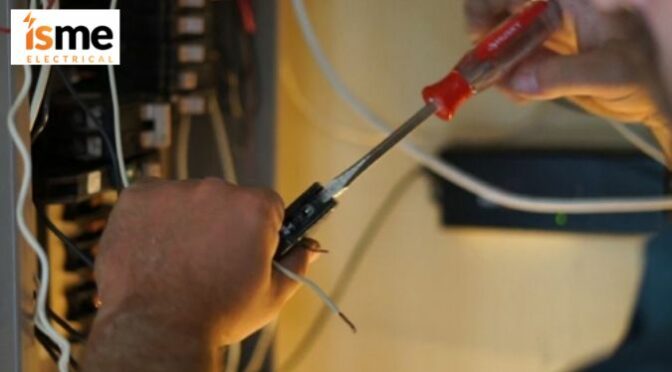Residential and commercial wiring share the same safety foundations but diverge in scale, complexity and regulatory expectations. Knowing the differences helps home and business owners, facility managers and sole traders plan safe, compliant and cost-effective installations. This blog highlights five key contrasts and practical implications, and you’d need the services of a certified electrician in Hope Island in both cases.
Supply Type and Load Capacity
Most homes use single-phase supply, while commercial buildings commonly use three-phase or higher-capacity services to meet heavier loads. Three-phase systems provide more stable power for motors, HVAC and heavy machinery and require different switchgear and protection devices. Accurately matching supply to demand is essential for reliability and billing.
Circuit Design and Distribution
Commercial installations have larger numbers of circuits, larger switchboards and multiple distribution boards to segregate lighting, power and mechanical loads. Residential wiring usually concentrates on a smaller number of final subcircuits for sockets, lighting and fixed appliances. Commercial installations prioritise redundancy, segregation and easier access for maintenance.
Protection and Safety Devices
Modern wiring rules require RCD protection for most final subcircuits in both settings, but commercial sites face stricter RCD coverage and testing regimes. Commercial and industrial installations commonly use additional protective devices such as residual current monitors, circuit monitoring and higher capacity surge protection to manage more severe electrical risks. However, only a licensed electrician in Pimpama will know about the different compliance requirements.
Cable Selection and Sizing
Commercial wiring uses larger conductor sizes and armoured or higher temperature-rated cables to handle sustained loads and to meet voltage drop and short circuit requirements. Cable sizing follows AS/NZS 3008 and related standards, which specify current carrying capacity, voltage drop limits and environmental derating factors. Correct sizing reduces heat risk and energy loss.

Access, Documentation and Testing
Commercial installations are subject to stricter documentation, labelling and periodic testing. Test regimes include RCD testing, earth loop and insulation resistance checks and scheduled maintenance to meet occupational health and safety obligations. This is only something a commercial electrician in Robina would know. Residential installations, on the other hand, have simpler handover records but still require compliance certificates and safety testing after major work.
Practical Implications For Home and Business Owners
For facility owners the differences mean higher initial costs for commercial switchgear, increased maintenance budgets and the need for licensed commercial electricians. For homeowners the emphasis is on safe, code-compliant installations that fit daily living loads and future upgrades such as EV charging. Early planning saves costs and reduces retrofit complexity.
When to Hire an Electrician in Hope Island?
Engage a commercial electrician for multi-circuit, three-phase or business premises work. Residential electricians are suited to single-phase, small renovations and domestic upgrades. Always check licences, insurance and references, and insist on written test certificates and compliance statements.
Frequently Asked Questions
Understanding the technical and regulatory differences between residential and commercial electrical wiring helps the customers make better decisions. Also, plan budgets to include commissioning tests, scheduled maintenance and contingency for future capacity upgrades or code changes.
Need a Licensed Electrician? We Got You Covered!
Isme Electrical Gold Coast Pty Ltd provides licensed and fully insured electricians in Hope Island, Pimpama and Robina for residential and commercial wiring. To obtain a quote or schedule a site visit, call 0466 404 404 today.

 Mon to Sat: 7am - 6pm
Mon to Sat: 7am - 6pm Gold Coast, Australia
Gold Coast, Australia 5.0
5.0  Reviews
Reviews

